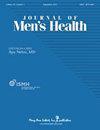Application effect of a Donabedian three-dimensional quality evaluation model in perioperative nursing of early gastric cancer male patients undergoing endoscopic mucosal dissection
IF 0.6
4区 医学
Q4 Medicine
引用次数: 0
Abstract
The effect of Donabedian three-dimensional quality evaluation model is explored for the high-quality nursing during perioperative period of endoscopic mucosal dissection in early gastric cancer male patients. Seventy-eight early gastric cancer male patients were randomly grouped as 39 cases in control having received routine care, while 39 in the intervention group having received routine care combined with the three-dimensional quality evaluation model. Clinical recovery indicators including anxiety, depression, pain, life quality and complications were compared for the two groups. The intervention group’s clinical nursing recovery indicator scored higher than that of the control. The scores of each the short-form 36 item health survey questionnaire (SF-36) dimension were better than those of control, and the differences were statistically significant (p < 0.05). The incidence of complications in intervention group was 5.12%, and that in the control was 20.5%. The intervention group experienced less complications than the control, and the difference was statistically significant (p < 0.05). Treating early gastric cancer male patients with endoscopic mucosal dissection using three-dimensional quality evaluation model can improve clinical recovery and life quality, and reduce anxiety, depression, pain and complications.Donabedian三维质量评价模型在男性早期胃癌患者内镜下粘膜剥离围手术期护理中的应用效果
探讨Donabedian三维质量评价模型对早期男性胃癌患者内镜下粘膜剥离围手术期高质量护理的效果。78例男性早期胃癌患者随机分组,对照组39例接受常规护理,干预组39例接受常规护理并结合三维质量评价模型。比较两组患者的焦虑、抑郁、疼痛、生活质量及并发症等临床康复指标。干预组临床护理恢复指标得分高于对照组。两组健康调查问卷(SF-36)各维度得分均优于对照组,差异有统计学意义(p <0.05)。干预组并发症发生率为5.12%,对照组为20.5%。干预组并发症发生率低于对照组,差异有统计学意义(p <0.05)。应用三维质量评价模型治疗早期胃癌男性患者行内镜下粘膜剥离术,可提高临床恢复和生活质量,减少焦虑、抑郁、疼痛和并发症。
本文章由计算机程序翻译,如有差异,请以英文原文为准。
求助全文
约1分钟内获得全文
求助全文
来源期刊

Journal of Men's Health
Medicine-Urology
CiteScore
0.70
自引率
28.60%
发文量
153
审稿时长
10 weeks
期刊介绍:
JOMH is an international, peer-reviewed, open access journal. JOMH publishes cutting-edge advances in a wide range of diseases and conditions, including diagnostic procedures, therapeutic management strategies, and innovative clinical research in gender-based biology. It also addresses sexual disparities in health, life expectancy, lifestyle and behaviors and so on. Scientists are encouraged to publish their experimental, theoretical, and descriptive studies and observations in as much detail as possible.
 求助内容:
求助内容: 应助结果提醒方式:
应助结果提醒方式:


